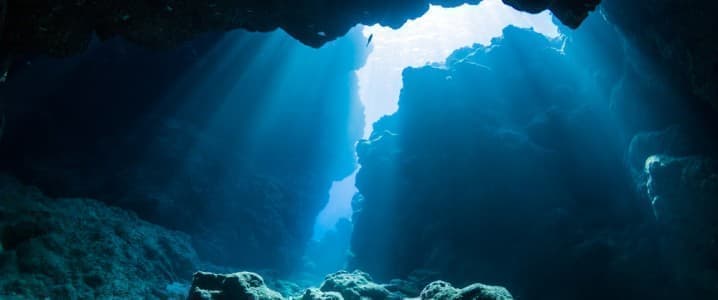Just a month after Norway approved the world’s first deep-sea mineral mining, a UN regulator has stated that he thinks the international practice of deep-sea mining is likely inevitable. There is growing interest in commercial deep-sea mining for critical metals and minerals to support an accelerated global green transition. However, there is also widespread opposition due to fears of the environmental impact of these types of activities, which could hinder efforts to tackle climate change.
At the beginning of the year, Norway became the first country to approve the practice of deep-sea mining for critical minerals. There has been a growing international discussion around the potential for deep-sea mining to extract metals and minerals needed to grow the world’s renewable energy capacity and help develop clean technologies. However, there has been widespread opposition to these types of mining activities from environmentalists and scientists who say we do not yet understand the potential impact of deep-sea mining well enough for it to be deemed safe. Many worry that the environmental impact of deep-sea mining could undermine the efforts of developing the world’s renewable energy capacity to tackle climate change.
In January, the Norwegian parliament voted in favour of opening its waters for commercial-scale deep-sea mining to support a global shift away from fossil fuels to renewable alternatives. It also believes that deep-sea mining could be less harmful to the environment than land-based mining, the widespread practice currently used to extract metals and minerals. There is an abundance of potato-sized nodules of critical minerals, including cobalt, nickel, copper, and manganese, sitting on the bottom of the seafloor that Norway, and many other world powers, want to access through deep-sea mining to meet the growing demand for critical minerals from the green energy sector. However, Norway will not immediately commence mining operations. The government will instead assess proposals from mining companies on a case-by-case basis for license approval.
This month, Michael Lodge, the head of the International Seabed Authority, the U.N. regulator that oversees deep-sea mining, said that he believes it is only a matter of time until deep-sea mining activities take place. Lodge is seeing renewed global interest in deep-sea mining as a means of accelerating the global green transition. Governments and regulators worldwide have been exploring ways to meet the growing demand for critical metals and minerals, for fear that demand will outstrip supply if we cannot access alternative mineral deposits.
Lodge explained, “One of the main drivers of industrial interest is the potential to produce larger quantities of minerals at equivalent or lower cost to what can be produced on land.” He added, “That’s the commercial driver and certainly there is vast resource potential in seabed minerals. The question is whether they can in the end be produced economically. “But the resource potential is absolutely there. This is clear. The technology is advanced, so it seems like it is possible. And at the same time, it is very clear also that demand for minerals is increasing exponentially and is only going to continue to increase.”
The ISA is scheduled to recommence talks on deep-sea mining in Kingston, Jamaica, in March. If successful, this could lead to the development of a regulatory framework for deep-sea mining on a commercial scale. The ISA regulates mining across an area covering 54 percent of the world’s oceans, representing 68 member states as well as the EU, but not the U.S. The ISA Council has previously stated its intention to develop deep-sea mining regulations by 2025. However, 24 countries around the globe have called for a pause on these types of activities, supported by several major companies, such as Google, Samsung, and Volvo. Deep-sea mining requires the use of heavy machinery to remove metals and minerals from the ocean floor. There is a fear that commencing deep-sea mining operations before fully understanding the potential impact on the sea bed could lead to permanent harm to marine life and ecosystems.
Nevertheless, Lodge believes it is only a matter of time until deep-sea mining activities are approved. He said, “Clearly now, we are reaching a very high level of interest so I would say that yes it seems to be inevitable.” Lodge added, “Whether that takes place in international waters, or in national waters, whether that be Norway or another country, that’s impossible to say. It depends in part upon the terms and conditions I suppose.” He emphasised the unsustainability of the current situation, with a few state powers dominating the mineral and metal mining industry – such as China and Russia, and suggested that deep-sea mining could create greater competition in the industry and provide the stable supply of resources needed to support a global green transition.
By Felicity Bradstock for Oilprice.com
More Top Reads From Oilprice.com:
- Kremlin Warns of Escalation if NATO Troops Fight in Ukraine
- Supply Chain Woes Could Derail Biden’s Electric Vehicle Agenda
- Kazakhstan Targets Fintech to Boost Revenue and Curb Tax Evasion


















